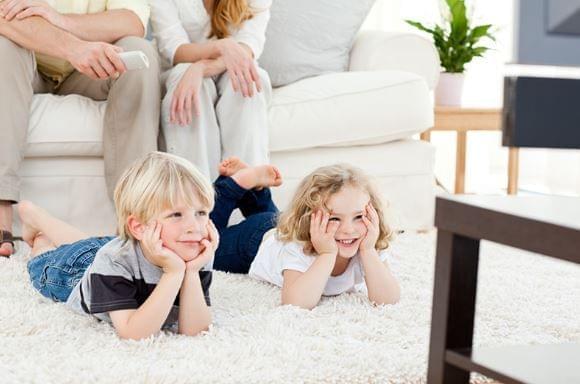Can TV be an educational tool for kids today?

UPMC HealthBeat
Children’s television has truly evolved over the years. NPR’s 1A with Joshua Johnson talked to Lesli Rotenberg, senior vice president and general manager of children’s media and education at PBS, to talk about what the future of kids TV looks like and TV’s role in the education of children today.
Lesli began by explaining how kids TV has evolved over the years. In the late 1960s, 97% of all American households had a television set, and preschool children watched an average of 27 hours of television per week. Children’s programs were criticized for being too violent and simply trying to sell products to children. It was then that producer Joan Ganz Cooney, founder of the Children’s Television Workshop (CTW), called children's programming a "wasteland." She felt that many children's television programs were produced by local stations with little regard for educational goals or cultural diversity. The use of children's programming as an educational tool was "unproven" and "a revolutionary concept". CTW and PBS understood that there needed to be a shift in the way people thought about how children consumed television.
Lesli goes on to share that the goal of PBS’ children’s programming “Is to help children succeed in school and life, and be a catalyst for their interests and passions so the media can propel them to be curious about the world and go follow something.” Over the years, the core values of PBS remained the same but the way PBS recognizes children’s learning has changed greatly. WILL-TV understands how media can be a learning tool for today. Research has shown that games are one of the best ways kids can learn and all of the PBS KIDS shows and games are directly tied to developmentally appropriate learning goals. The PBS team works closely with early childhood researchers, experts, and parents to meet the developmental needs of the child. The programming offered is extensively tested and evaluated to make sure that the learning framework for each show is met.
Parents trust PBS as a safe place for their kids to view media content and are appreciative that the programs reinforce the values they teach at home. PBS KIDS remains dedicated to providing equitable access to programming and resources to help narrow the learning gap that exists between minority, low socio-economic status children and others. Through PBS KIDS programming, children can be better prepared for kindergarten and their community.
You can listen to the full interview here.
